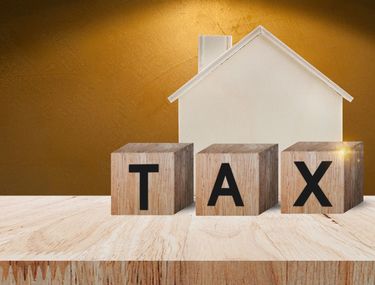Written by Sammy Habbaz, Senior Accountant
In last month’s Bottom Line newsletter, LMC senior accountant, Sammy Habbaz, discussed the tax benefits of investing in real estate.
In our previous article, we spoke about two ways to make real estate losses active.
- The average customer use of the property is 7 days or less. Or
- The average customer use of the property is 30 days or less and the taxpayer provides significant services.
The first is self-explanatory, but what is considered significant services and how will it impact the taxpayer?

According temporary treasury reg 1.469-T(e), significant services are dependent on the “relevant facts and circumstances, include the frequency with which such services are provided, the type and amount of labor required to perform such services, and the value of such services relative to the amount charged for the use of the property.”
A deeper dive into the regs gives an example of a taxpayer who provides daily cleaning services and linen service at no extra cost. Since these services are typically less than 10% of the total rent paid by customers, it is not considered significant enough to consider the losses generated by this investment as active. The regs go on to say, any activity that is for the general upkeep of the property such as cleaning and maintenance, trash collection, and security, is not considered significant. However, if an average customer uses the property 30 days or less, and the investor provides services that exceed the 10% threshold, the income/loss will be active.
A possible downside to deeming the activity as active is if a taxpayer provides these significant services, and the property produces income, the taxpayer may be subject to self-employment tax (additional 15.3%). According to a memo published by the IRS, a rental is subject to self-employment tax if:
- The services are not required to maintain the property and
- These services can be said to constitute a material portion of the rent
The memo outlines two examples.
- In the first example, the taxpayer is renting out a room and cleans it in between stays. Since the income is considered passive, there is no self-employment to be concerned about.
- In the second example, the taxpayer provides daily maid service, Wi-Fi, access to beach and other recreational equipment for use during the stay, as well as prepaid vouchers for uber. In this example the income will be subject to self-employment tax. However, let’s look at an example that’s less obvious.
Tax Court Case: Bobo v. Commissioner, 70 T.C. 706 (1978)
In Bobo, the taxpayer ran a trailer park. As part of the facilities, Bobo provided utility hook-ups, sewage facilities, and laundry. The court ruled, that the utility and sewage services were meant to maintain the property and were therefore not subject to self-employment tax. However, laundry services are solely for the convenience of the occupant. Since laundry services were not deemed a material portion of the rent, the income on the laundry was not subject to self-employment tax.
Material Portion of the Rent Threshold
While the court case gives us some insight, it is helpful to have a general understanding of what is subject to self-employment and what isn’t. Section 1.1402(a)-4 provides the following example:
- Taxpayer owns an apartment building with 4 units. Apartments 1&2 are rented for a combined $1,400. Apartments 3 & 4 are rented for a combined $3,600 with additional services provided. The fixed expenses for all 4 apartments are $1,200, with an additional cost to the landlord of $500 for services rendered for the convenience of tenants. For the purposes of calculating self-employment tax, income derived from the first two apartments are excluded since no additional services were provided. The taxpayer only pays self-employment tax on $2,500 ($3,600 – $600 – $500). From this example, we can conclude that if the cost of the services is at least 14% of the total rent, then the net income from this real estate activity would be subject to self-employment.
The Bottom Line
In general, real estate investments are exempt from self-employment tax. It’s important to understand that there are instances where this isn’t the case. While the above examples are a good starting point in understanding the law, please reach out to your LMC tax professional to discuss the particulars of your situation.



